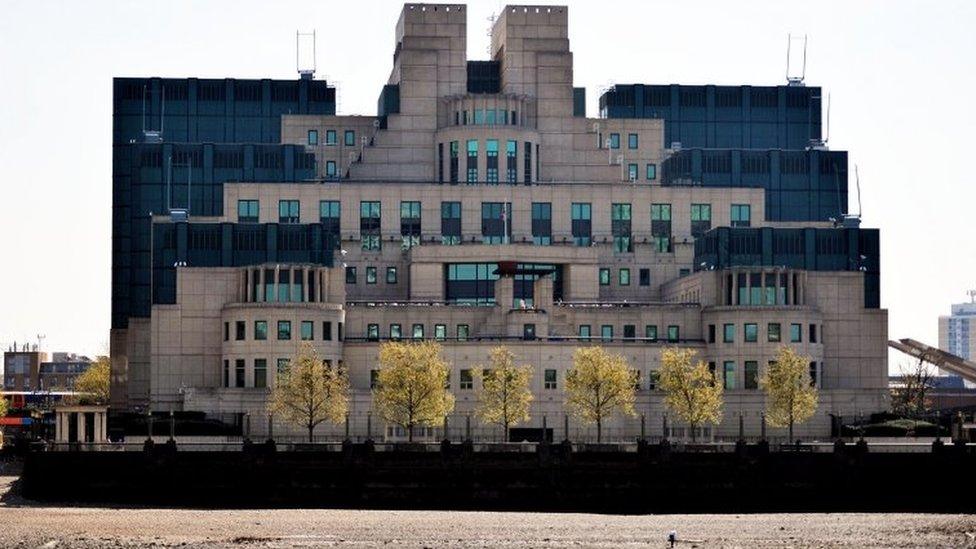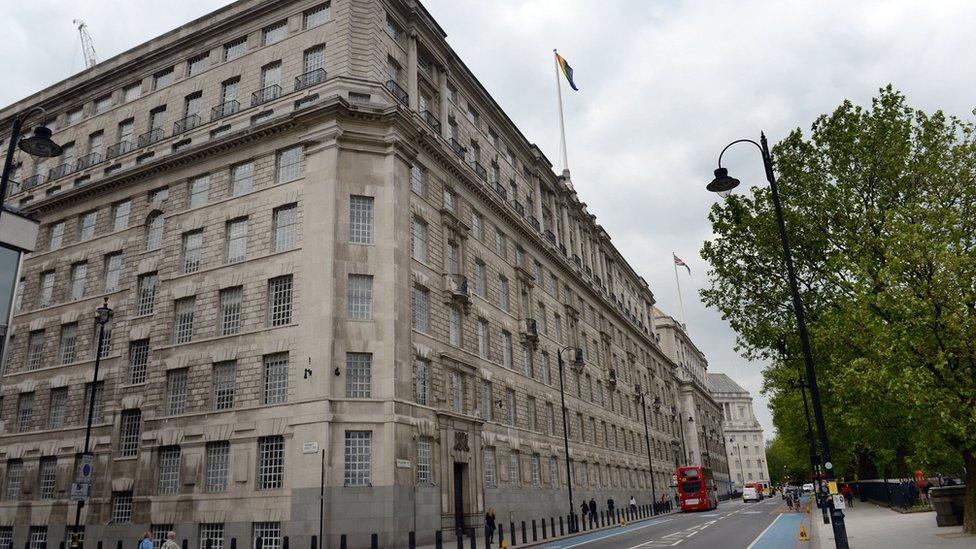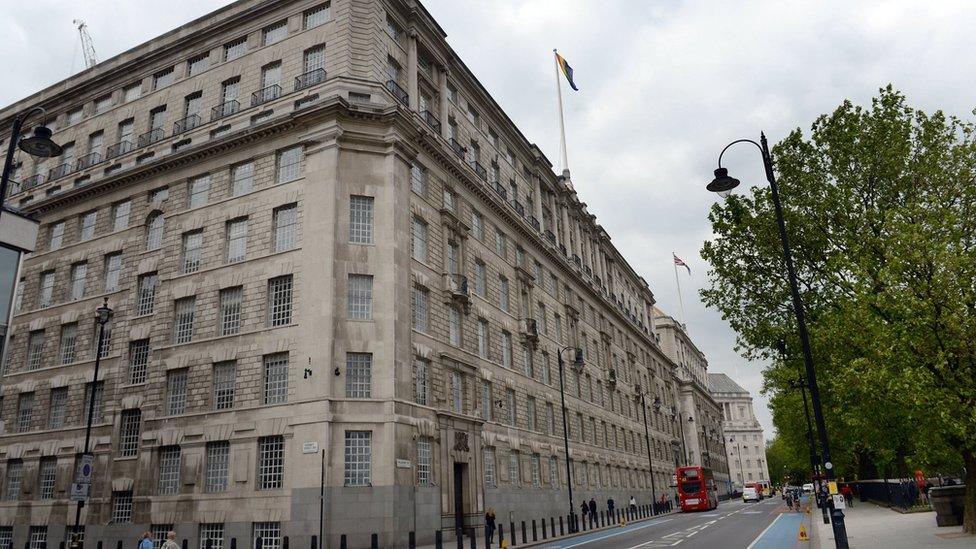MI6 apologises for court 'interference'
- Published

MI6's headquarters are in London
MI6 officers have been accused of attempting to interfere in a major legal battle over crimes linked to intelligence agencies.
Documents reveal officers sought to prevent documents being provided to one of the country's top judges.
The agency has since apologised - but critics say it was an attempt to put pressure on the judge and his team.
On Monday, the judge said MI6 had acknowledged that nothing like the incident should ever happen again.
The allegation of an inappropriate attempt to intervene in the work of the semi-secret Investigatory Powers tribunal has emerged 16 months after the incident.
In early 2019, the IPT, which hears complaints against intelligence agencies, was gathering and considering evidence in a case about whether MI6 and others can authorise their agents to commit crimes.
MI6, its UK counterpart MI5 and the communications agency GCHQ, were preparing their defence against the case which could see the current secret rules being disclosed.
On 5 March, two MI6 officers called Susan Cobb, the secretary of the Investigatory Powers Tribunal. They told her the tribunal should not have been provided with copies of secret documents which were potentially relevant to the case.
The documents were highly-sensitive inspections of MI6's work. The IPT had a legal right to not only see the documents but also to consider them as evidence.
But the officers told Ms Cobb the documents should not be passed to Lord Justice Singh, other members of the tribunal or the senior lawyer who advises them.
Two days later, Ms Cobb wrote to MI6 saying the phone conversations amounted to "inappropriate interference".
"It was inappropriate for your staff to seek to intervene in ongoing legal proceedings in the way that they sought to do," she wrote. "The tribunal is an independent judicial body."
Ms Cobb then sent the letter to the independent watchdog that inspects MI6.
Days later, a senior MI6 manager replied, admitting the contact had been wrong.
"Please accept my apologies for any misunderstanding that may have arisen as a result of the approach made to the tribunal," said the letter.
In court on Monday, lawyers for the campaign groups in the case - Reprieve, Privacy International and the Pat Finucane Centre - called for a wider investigation. They said the tribunal should ask whether MI6's directors had ordered an attempt to interfere in the case. But lawyers for the government said the agency had already apologised for what had been a mistake.
Lord Justice Singh said he would not order a wider investigation into MI6's motivations.
"The tribunal's secretary acted entirely appropriately in responding the way she did and by drawing these matters to my attention," he said.
"This tribunal is, in substance, a court which is completely independent of the government, the intelligence agencies and everybody else.
"In March 2019, it was recognised that the direct communication was inappropriate. An apology was given and it was recognised that nothing like this should happen in the future. Everyone recognised that something serious had gone wrong."
Maya Foa, director of Reprieve, said: "Britain's security services play a crucial role in keeping this country safe.
"But they do not get to decide what evidence a court should see. MI6 was right to apologise."
- Published5 November 2019

- Published2 July 2019
- Published11 June 2019
